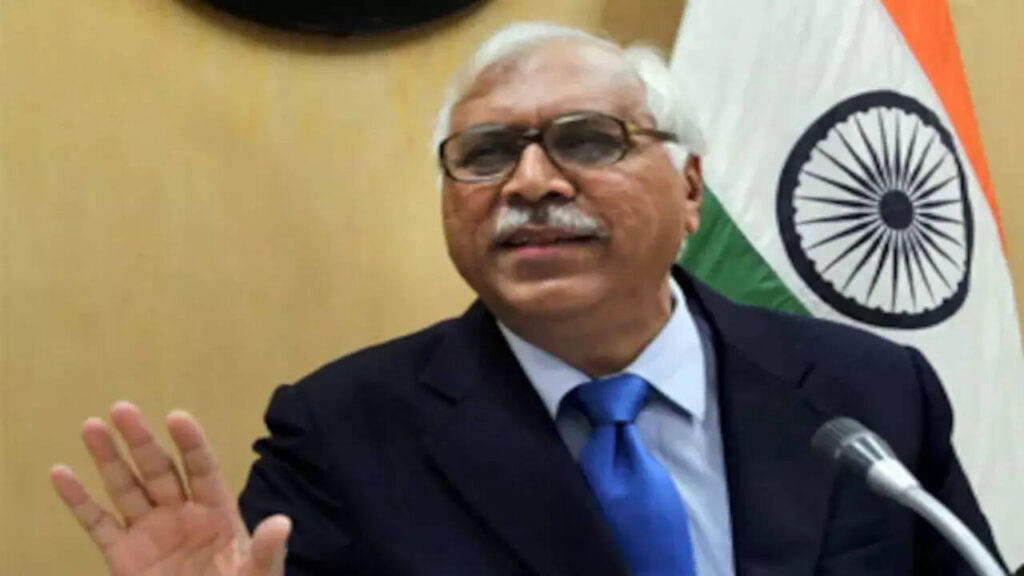Former Chief Election Commissioner of India, SY Quraishi, has firmly rejected allegations linking him to the use of US government funds to boost voter turnout during his tenure. The controversy emerged following an announcement by the US Department of Government Efficiency , led by billionaire Elon Musk, detailing significant expenditure cuts. Among the reductions was a $21 million allocation intended for “voter turnout initiatives in India.”
Quraishi, who oversaw the election commission from 2010 to 2012, addressed the claims on Sunday, dismissing them as baseless. His statement came in response to a report suggesting that foreign funding, particularly from US agencies, was channelled to support electoral processes in India under his leadership. This report had raised concerns about the integrity and independence of India’s electoral system, sparking heated debates across political and media circles.
The specifics of the DOGE report point to an allocation aimed at increasing voter participation globally, with India being one of the key targets. However, no direct evidence has been presented to show that Quraishi or the Election Commission of India had any involvement in or approval of such funding. The former CEC categorically denied any role in facilitating such foreign financial support, emphasizing the independence and autonomy of India’s election process.
The Indian electoral system, one of the largest and most complex in the world, has long been lauded for its credibility and transparency. Election-related activities in India, including voter registration and outreach efforts, have traditionally been handled by the Election Commission, often in collaboration with various local agencies and non-governmental organisations . Any suggestions of foreign interference, especially involving government funds, have triggered alarm among political leaders and citizens alike, who view it as a potential threat to the nation’s sovereignty.
As India prepares for upcoming state and national elections, the issue of foreign influence in electoral processes has garnered considerable attention. The government, as well as the Election Commission, have routinely dismissed claims of any foreign meddling in India’s democratic processes, maintaining that the country’s elections are conducted with the utmost integrity. This latest controversy adds to a long-standing narrative regarding the influence of external forces in domestic political affairs.
The DOGE report, which detailed cuts in a variety of international projects, including the controversial voter turnout funds, has also ignited wider discussions on US foreign policy and its approach to global democracy promotion. The agency, established to streamline and reduce government spending, stated that the funding had been initially allocated during the tenure of previous administrations. Elon Musk, who leads DOGE, has faced criticism for his decision to cut such programs, with some critics arguing that such moves could undermine efforts to encourage civic participation and democracy worldwide.
For Quraishi, the rejection of these claims is not just a defence of his own legacy but also a reaffirmation of the robustness of India’s electoral process. He stressed that the Election Commission’s work has always been independent and free from external influence. Under his leadership, the ECI took significant steps to modernise the electoral system, including the introduction of voter education programmes, electronic voting machines, and the expansion of the voter base through new registration initiatives. These efforts were recognised both within India and internationally for their effectiveness and transparency.
Quraishi’s tenure was marked by major reforms aimed at increasing voter turnout, especially among underrepresented groups. Initiatives such as the introduction of the Electoral Photo Identity Card and the expansion of postal ballot facilities were key to ensuring a fairer and more inclusive electoral system. However, these reforms were driven by domestic needs and priorities, with no indication that foreign funding played any role in their implementation.
The controversy comes at a time when India is experiencing growing interest in its electoral process from international observers. As the world’s largest democracy, India’s elections are closely watched, and the credibility of its electoral system is critical not only for domestic stability but also for the nation’s global image. Any insinuation of foreign involvement in elections has the potential to damage public trust in the system, especially given the country’s history of political and civil challenges.
Political parties in India have been quick to respond to the allegations, with some calling for further investigation into the claims made in the DOGE report. Opposition parties, in particular, have seized upon the opportunity to criticise the ruling government for its handling of the matter, alleging that it reflects poorly on India’s international standing. Meanwhile, government representatives have emphasised that India’s election system is self-sustaining and immune to external interference.




 BJP’s New Plan Aims to Tackle Yamuna Pollution Crisis
BJP’s New Plan Aims to Tackle Yamuna Pollution Crisis 